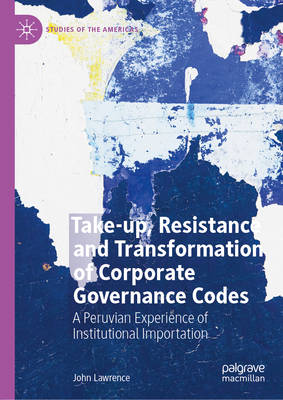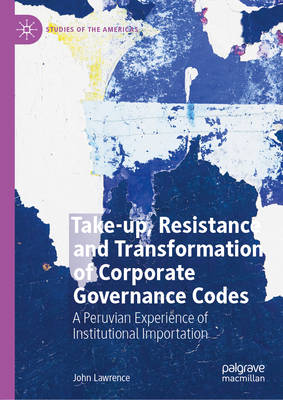
Bedankt voor het vertrouwen het afgelopen jaar! Om jou te bedanken bieden we GRATIS verzending (in België) aan op alles gedurende de hele maand januari.
- Afhalen na 1 uur in een winkel met voorraad
- Gratis thuislevering in België vanaf € 30
- Ruim aanbod met 7 miljoen producten
Bedankt voor het vertrouwen het afgelopen jaar! Om jou te bedanken bieden we GRATIS verzending (in België) aan op alles gedurende de hele maand januari.
- Afhalen na 1 uur in een winkel met voorraad
- Gratis thuislevering in België vanaf € 30
- Ruim aanbod met 7 miljoen producten
Zoeken
Take-Up, Resistance and Transformation of Corporate Governance Codes
A Peruvian Experience of Institutional Importation
John Lawrence
€ 160,45
+ 320 punten
Omschrijving
Corporate governance brings transparency to corporate decision-making, however more research is needed into the rationale for the diffusion of governance codes to developing countries. This book explores why listed corporations in Peru decided to comply with a voluntary code of corporate governance practice introduced in 2014 to over 200 corporations registered on the Lima stock exchange. It looks at why some listed corporations would incur the expense of actively complying with such a code when it is neither suited to their corporate ownership structures, nor to their equity markets. Combining empirical research with a sound theoretical base and interviews with those working in the field, the book comes to an objective conclusion that rejects the description that big businesses in Latin America are self-interested and frequently corrupt, and instead are concerned about sustainability and building legitimacy in their chosen domains.
Specificaties
Betrokkenen
- Auteur(s):
- Uitgeverij:
Inhoud
- Aantal bladzijden:
- 259
- Taal:
- Engels
- Reeks:
Eigenschappen
- Productcode (EAN):
- 9783031881800
- Verschijningsdatum:
- 24/10/2025
- Uitvoering:
- Hardcover
- Formaat:
- Genaaid
- Afmetingen:
- 148 mm x 210 mm
- Gewicht:
- 494 g

Alleen bij Standaard Boekhandel
+ 320 punten op je klantenkaart van Standaard Boekhandel
Beoordelingen
We publiceren alleen reviews die voldoen aan de voorwaarden voor reviews. Bekijk onze voorwaarden voor reviews.









